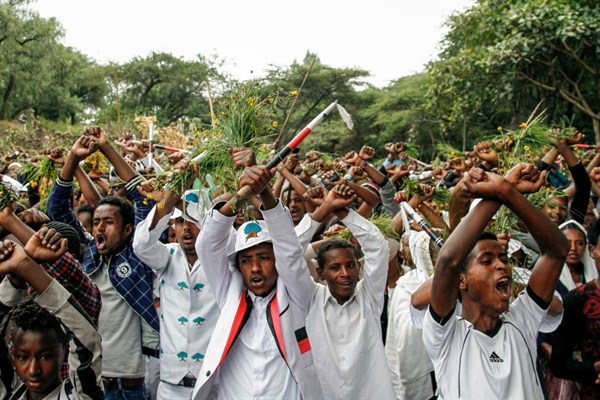Long before a demonstration against South Sudan’s president forced Nikki Haley to evacuate a displaced persons camp in Juba on Wednesday, it was a safe bet that much of the coverage generated by her first trip to Africa as U.S. ambassador to the U.N. would concern the civil war in that country—with some possible competition from her stop in the Democratic Republic of Congo. President Donald Trump specifically mentioned both countries when he announced in September that he planned to send Haley to the continent. Haley has been openly critical of the South Sudanese and Congolese presidents for months, increasing the likelihood of confrontational one-on-one meetings.
The trip began, though, in Ethiopia, the home base for the African Union and a stalwart U.S. ally that remains central to Washington’s priorities in the region, especially the fight against terrorist groups.
Traditionally seen as a bastion of stability, Ethiopia currently faces internal security problems that are impossible to deny, even if they receive scant attention beyond its borders.

